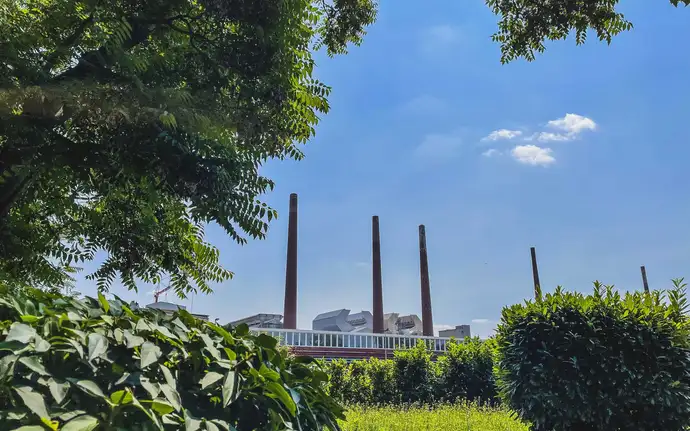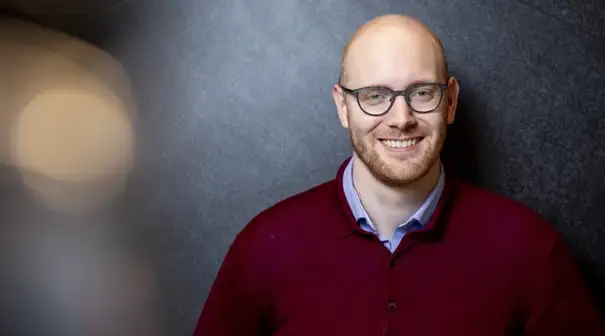SCHOTT achieves first successes in its climate neutrality initiative
29 September 2022, Germany, Mainz
- Electricity requirements switched to 100% green electricity
- Carbon emissions cut by 60% since 2019
- Technology roadmap focuses on electricity and hydrogen for glass melting

Specialty glass production requires a lot of energy. To manufacture CERAN® cooktops, pharmaceutical glass tubing, or protective smartphone cover glass, SCHOTT requires temperatures of up to 1,700° Celsius to melt the raw materials for glass. Its melting furnaces have primarily relied on the fossil fuel natural gas. They consume the largest share of energy at SCHOTT, and therefore cause most of its carbon emissions.
"Globally, we are experiencing a lot of economic uncertainties. However, we don’t want these to negatively impact our progress in the fight against climate change. We believe this is one of the most important challenges of our time," said Dr. Jens Schulte, Member of the Board of Management and Head of the Zero Carbon program. "We’ve already achieved some important milestones at SCHOTT. In the coming years, we will be setting further ambitious interim targets in order to achieve climate neutrality and are working intensively to reduce our carbon emissions. The current gas crisis will not change our commitment to our sustainability initiatives."
Successful switch to 100% green electricity
At the start of the Zero Carbon program, SCHOTT's global emissions were around one million tons of carbon dioxide equivalents (CO2e). By 2022, the company has reduced its carbon emissions by more than 60%, despite an increase in energy consumption due to production facilities’ high capacity utilization and the construction of new ones. SCHOTT’s reduction in carbon emissions is mainly due to its global switch to 100% green electricity. In addition to natural gas, which is mainly used to fire furnaces, electricity is SCHOTT’s largest energy source in terms of volume. To make the switch, SCHOTT is relying on renewable energies through corresponding Energy Attribute Certificates (EACs). In order to make a strong contribution to the energy transition, SCHOTT has committed to using high-quality, independently verified green electricity certificates.
Since 2022, the company also relies on power purchase agreements (PPAs), which make a more concrete contribution to the energy transition. PPAs are contracts with operators of renewable energy plants, such as wind farms. SCHOTT has concluded three long-term contracts with renowned providers in Germany, and is pursuing further opportunities. The company will cover 17% of its electricity consumption in Germany for the year 2023 using PPAs.
Technology change is SCHOTT’s biggest challenge
SCHOTT’s switch to green electricity marks the first step in its ambitious innovation and transformation process. Since the company wants to eliminate fossil energy use such as gas as much as possible, technology change is its most important and most difficult goal in terms of achieving climate neutral production. However, this ongoing process will take longer than the year 2030. This is because the development of new technologies requires groundbreaking process innovations in glass production. SCHOTT’s transformation is a long-term task with high development and cost expenditures. For a successful transformation, green energy sources must be made available on an industrial scale, requiring corresponding infrastructure investments by energy suppliers and grid operators.
"At the moment, we are investing a mid-double-digit million euro amount to achieve our climate targets. We are using this money to acquire high-quality green electricity and also research new technologies for decarbonized production," explained Dr. Jens Schulte. "In order to convert our plants to these technologies, we expect to invest significantly higher sums in the coming years."
Research projects for more climate-friendly glass melting
In terms of technology development, SCHOTT’s experts are focusing on energy-intensive glass melting. Here, the company is pursuing two transformative initiatives in order to be able to produce its products without gas in the future: electrifying its melting tanks using green electricity and utilizing hydrogen.
In both fields, SCHOTT has launched several research projects that are pioneering work for the glass industry and are partially supported by grant funding from the German government and the European Union. For its hydrogen initiative, the company is planning large-scale production tests at its Mainz site at the end of fall 2022.
"The initial results of our research are really promising," says Dr. Matthias Müller, Head of Research and Development at SCHOTT. "We are convinced that we can provide an important impetus for the entire glass industry. Therefore, we have been working to intensify our activities in this area."
Technology roadmaps outline SCHOTT’s path forward
After researching and developing these more sustainable technologies, SCHOTT is planning their widespread implementation. The company has structured this rollout using technology roadmaps, which show how research results can be implemented in production in the long-term. The roadmaps encompass all parts of the company, from the corporate level to the individual business units to every production site worldwide. The roadmap envisions pilot plants for decarbonized production starting as early as 2025.
The group-wide technology transition after the pilot phase is complex, as it depends on many factors: for example, melting furnaces cannot be replaced at any given time, because they have a defined lifetime and are planned in investment cycles. In addition, certain economic and political developments are beyond SCHOTT’s control, such as the development of a hydrogen infrastructure or the expansion of renewable energies so that sufficient green electricity is available.
"Our technology shift is a marathon and not a sprint. We are working intensively on innovations and investing large sums to ensure that our complex production is ready to go as soon as sustainable energy sources are available on an industrial scale," explained Dr. Jens Schulte. "We will only successfully solve the major challenges facing society as a whole in the energy transition if everyone works together. In addition to our own contribution, companies need the support of policymakers for the additional costs of this transformation."
SCHOTT strategy: Four action fields for climate neutrality
SCHOTT wants to achieve its goal of climate neutrality through an action plan with four pillars. The company is focusing on technology change in addition to switching to 100% green electricity. Another field of action is improving energy efficiency. The last step in the company’s plan is compensating its remaining emissions.
Despite its efforts, SCHOTT as a manufacturing company will not be able to eliminate all its emissions. For this reason, it plans to compensate remaining greenhouse gas emissions by engaging in climate protection projects for the foreseeable future. In doing so, SCHOTT relies on certificates with strict international standards, such as the Verified Carbon Standard or the Gold Standard.
To calculate climate-relevant emissions, it assesses its greenhouse gas emissions across the company, including emissions from SCHOTT’s production (Scope 1 of the Greenhouse Gas Protocol) and from purchased energy (Scope 2). Scope 3 also includes business travel and employee mobility. In a next step, further Scope 3 emissions will be included, which consider, among other things, emissions in the supply chain. In order to establish comparability of the climate impact, SCHOTT reports its greenhouse gas emissions in CO2 equivalents (CO2e).
Links:
Environmental protection at SCHOTT
Pioneering – responsibly – together
These attributes characterize SCHOTT as a manufacturer of high-tech materials based on specialty glass. Founder Otto Schott is considered its inventor and became the pioneer of an entire industry. Always opening up new markets and applications with a pioneering spirit and passion – this is what has driven the #glasslovers at SCHOTT for more than 130 years. Represented in 34 countries, the company is a highly skilled partner for high-tech industries: Healthcare, Home Appliances & Living, Consumer Electronics, Semiconductors & Datacom, Optics, Industry & Energy, Automotive, Astronomy & Aerospace. In the fiscal year 2021, its 17,300 employees generated sales of 2.5 billion euros. SCHOTT AG is owned by the Carl Zeiss Foundation, one of the oldest foundations in Germany. It uses the Group's dividends to promote science. As a foundation company, SCHOTT has anchored responsibility for employees, society and the environment deeply in its DNA. The goal is to become a climate-neutral company by 2030.

Jonas Spitra
Head of Sustainability Communications




